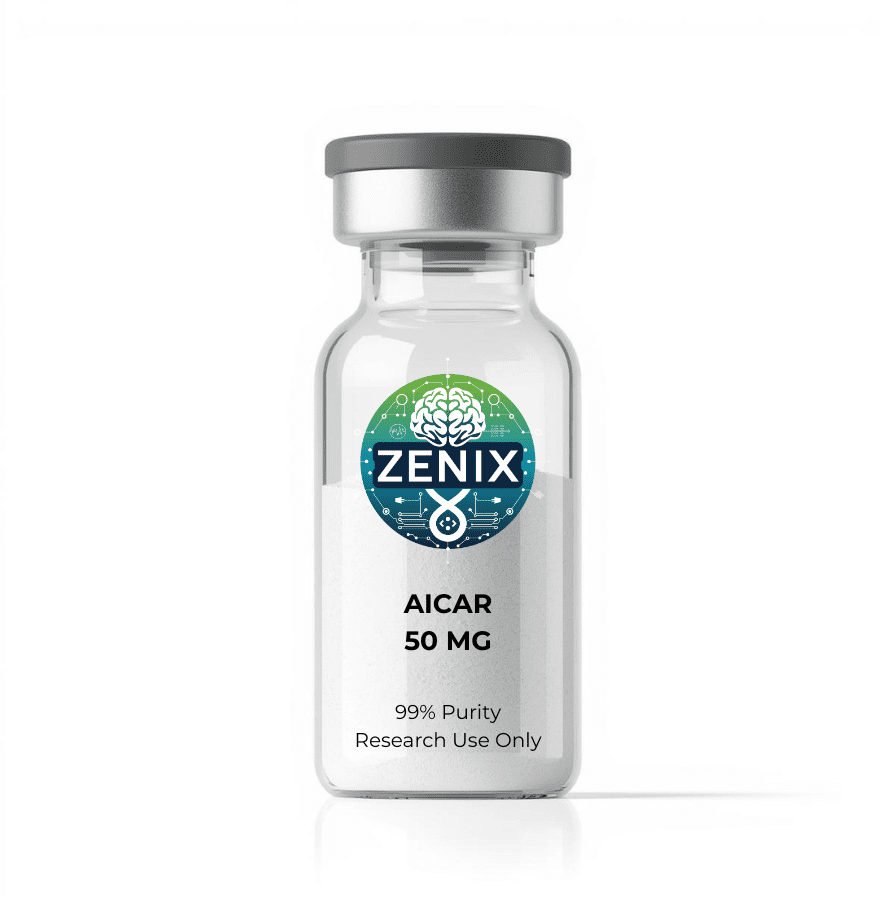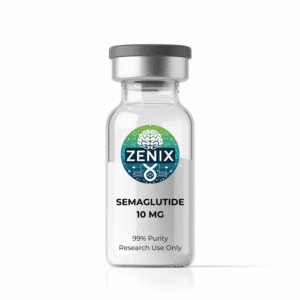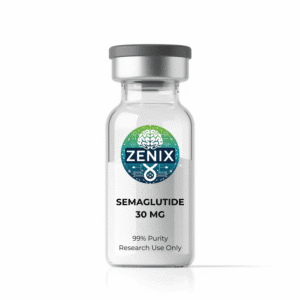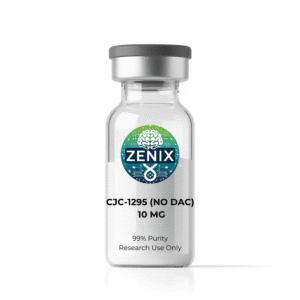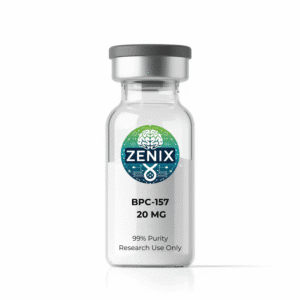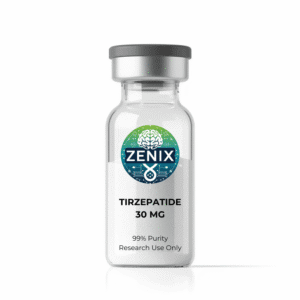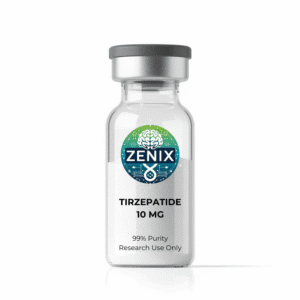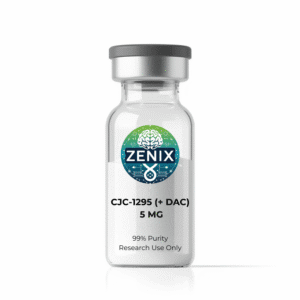Pricing Table
| Kit Size | Dosage per Vial | Total Peptide | Your Price | Price per mg |
|---|---|---|---|---|
| 10 Vials | 50mg | 500mg | $230 | $0.46/mg |
Quick Product Specs
- Purity: ≥99%
- Form: Lyophilized Powder
- Chemical Name: 5-Aminoimidazole-4-carboxamide ribonucleoside (AICA riboside)
- Molecular Weight: 258.23 g/mol
- Storage: -20°C (freezer)
- Shelf Life: 24 months unopened
- Alternative Name: Acadesine, ZMP, AICA ribonucleotide
What is AICAR (Acadesine)?
AICAR (5-Aminoimidazole-4-carboxamide ribonucleoside), also known as Acadesine, is a synthetic nucleoside analog that serves as a potent activator of AMP-activated protein kinase (AMPK), often referred to as the body’s “metabolic master switch.” Once inside cells, AICAR is phosphorylated to form ZMP (AICAR monophosphate), which mimics AMP (adenosine monophosphate) and directly activates AMPK without requiring actual cellular energy depletion.
AMPK is a critical energy sensor that regulates cellular metabolism, responding to changes in the AMP:ATP ratio. When activated, AMPK initiates catabolic pathways that generate ATP (such as glucose uptake, fatty acid oxidation, and mitochondrial biogenesis) while simultaneously inhibiting anabolic pathways that consume ATP (such as fatty acid and protein synthesis). This makes AMPK activation a fundamental mechanism in metabolic regulation, exercise adaptation, and energy homeostasis.
AICAR gained significant attention in metabolic research following a landmark 2008 study by Narkar et al., which demonstrated that 4 weeks of AICAR treatment in sedentary mice enhanced running endurance by 44% and induced genes associated with oxidative metabolism in muscle cells, effectively mimicking some beneficial effects of exercise training without actual physical activity. This discovery positioned AICAR as an “exercise mimetic” compound and sparked extensive research into its metabolic, cardiovascular, and performance-related effects.
The compound’s mechanism extends beyond simple AMPK activation. Research has identified important AMPK-independent effects of AICAR, including direct impacts on glucose transport, mitochondrial function, and gene expression patterns. This multi-modal activity makes AICAR a valuable tool for dissecting metabolic pathways and understanding the complex interplay between energy sensing, substrate metabolism, and cellular adaptation.
AICAR has been investigated in contexts ranging from diabetes and metabolic syndrome to cardiovascular disease, cancer metabolism, and neurodegenerative disorders. Its ability to activate metabolic pathways associated with exercise makes it particularly relevant for research into physical performance, muscle fiber type conversion, mitochondrial biogenesis, and metabolic flexibility.
Important Note: Due to its performance-enhancing potential, AICAR is prohibited in sport by the World Anti-Doping Agency (WADA) and appears on the WADA Prohibited List. This product is strictly for research purposes only.
Research Applications
- AMPK Activation & Metabolic Regulation Research
- Exercise Mimetic & Endurance Research
- Mitochondrial Biogenesis Studies
- Glucose Metabolism & Insulin Sensitivity Research
- Lipid Metabolism & Fatty Liver Research
- Cardiovascular Research
- Cancer Metabolism Research
- Neurological & Neuroprotection Research
- Muscle Wasting & Sarcopenia Research
- Autophagy & Cellular Quality Control

